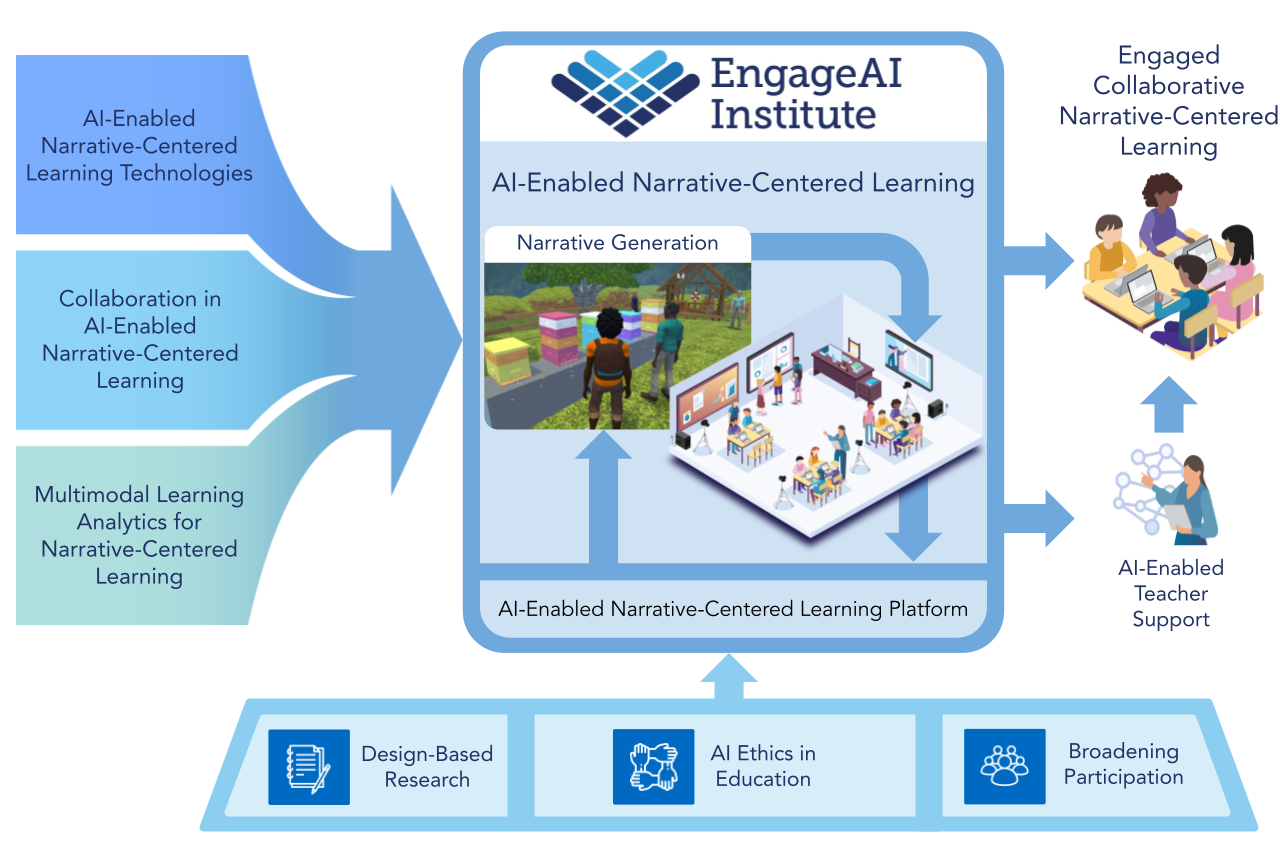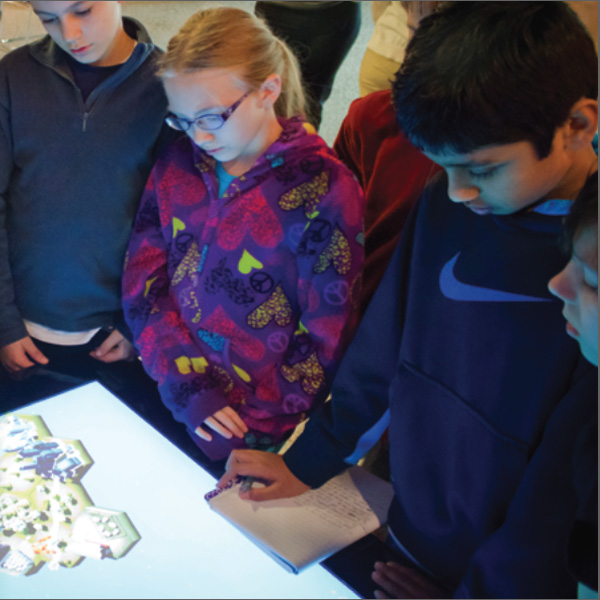The EngageAI Institute works at the intersection of use-inspired AI research on AI-augmented learning and foundational AI research on natural language processing, computer vision, and machine learning. Driven by a learner-centered vision of AI-augmented learning, we are focused on creating AI-driven narrative-centered learning environments that generate engaging story-based problem-solving experiences to support collaborative inquiry learning. Advances in core AI technologies drive new levels of interactivity and multimodal engagement, as well as support the creation of powerful predictive models of student learning.

Our Three Commitments
- Ethical AI. The transformative potential of AI comes with significant responsibility to look beyond its prospective benefits and recognize the challenges and potential risks inherent in AI-augmented engaged learning. Woven throughout our activities is a strong focus on AI ethics, including the creation of AI-augmented learning technologies that are deeply informed by considerations of fairness, accountability, transparency, trust, and privacy.
- Broadening Participation. We are pursuing an ambitious agenda for broadening the participation of underrepresented groups, including women, people of color, and persons with disabilities in all of its activities. We are committed to engaging diverse learners and educators throughout all stages of the Institute’s research and development activities to ensure the creation of AI-driven narrative-centered learning environments that embody values of diversity, equity, and inclusion. We are also committed to including diverse people in all levels of the Institute with an emphasis on women and people of color.
- Education and Workforce Development. A science, technology, engineering, and mathematics (STEM)-literate workforce is essential for solving complex societal problems, national growth, innovation, and well-being. Our primary goal is to engage more K-12 students in STEM and computer science (CS) education in both formal (school) and informal (museum, after-school programs) settings by making STEM learning more engaging and connected to the real world. We also prioritize direct mentorship and professional development for teachers, museum personnel, and other informal educators.
Research Themes

Narrative-Centered Learning
The EngageAI Institute is creating narrative-centered learning environments that generate engaging interactive story-based problem scenarios that elicit rich communication, require coordination, and spark collaborative creativity. The narrative-centered learning environments will feature conversational agents that play a wide range of roles to engage students in authentic problem-solving scenarios.

Adaptive Collaborative Learning
The EngageAI Institute is creating adaptive collaborative narrative-centered learning environments to analyze and support students’ collaborative inquiry and problem-solving processes. It also conducts research on narrativized collaborative embodied learning to bridge narrativized embodied learning and collaborative learning in AI-enabled narrative-centered learning environments.

Multimodal Learning Analytics
The EngageAI Institute is creating an innovative multimodal learning analytics framework that analyzes parallel streams of multimodal data (including video and audio data) derived from students’ conversations, gaze, facial expressions, gestures, and posture as they interact with each other, teachers, and conversational agents.
Selected Research Projects
Classroom Video Summarization with AI-Based Vision-Language Modeling
The Institute is investigating the performance of multimodal vision-language models on classroom videos.
Generalized Multimodal Learning Analytics Pipeline
The Institute is creating a multimodal learning analytics pipeline for usage with the Institute’s AI-driven narrative-centered learning environments.
Collaborative Narrative Learning Dialogue Analysis
The EngageAI Institute team is investigating deep learning techniques for analyzing multi-party dialogue between students during collaborative inquiry in AI-augmented learning environments.
